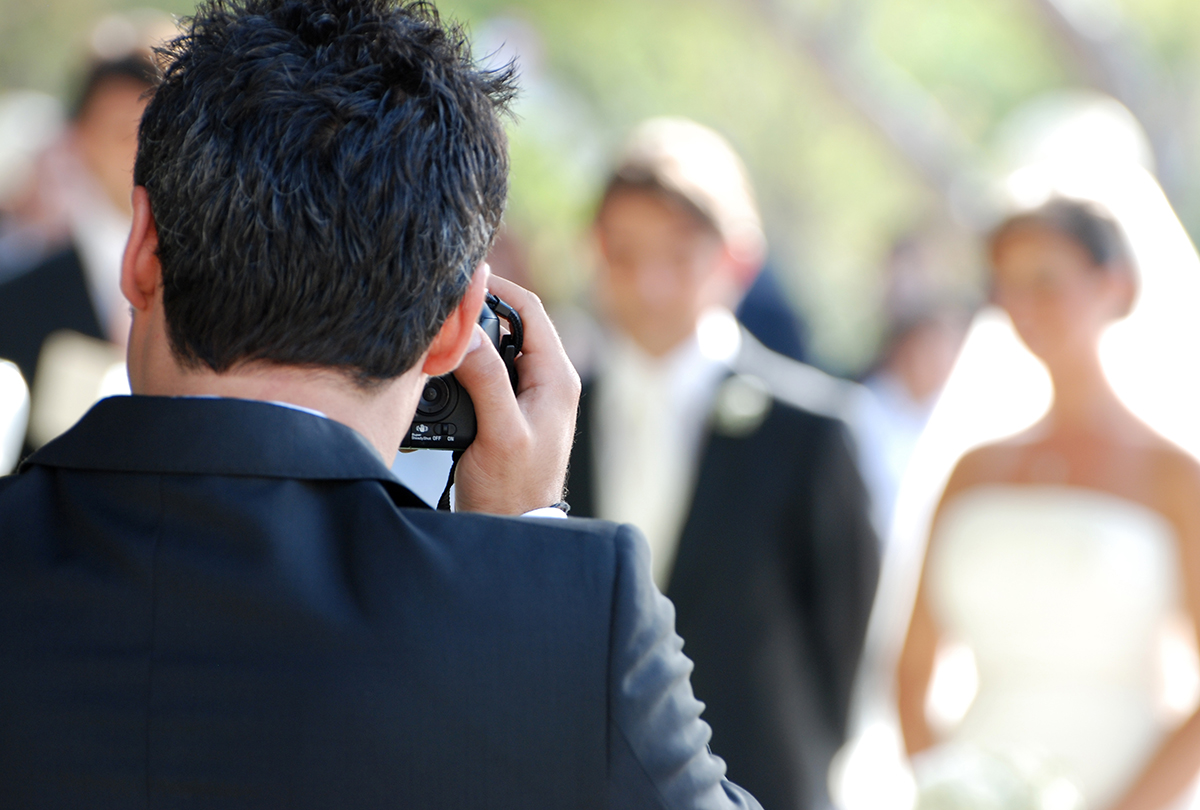Joseph Andreani and his fiancée hired Romeo Creations, Ltd., to videotape and photograph their wedding. Before entering into an agreement, they were shown the photographer’s sample wedding albums, which displayed a level of photographic skill with which they were satisfied. Pursuant to the contract entered into between the parties, Romeo Creations, Ltd., was to provide 3 professionals to photograph and videotape the wedding, and provide 70 pictures for the wedding album for the sum of $5,400.
Joseph Andreani testified that on the day of the wedding, only 2 professionals showed up (one videographer and one photographer). The photographer that showed up was not the owner of Romeo Creations, Ltd., but was employed as a “senior photographer” at the studio. Although 360 pictures were taken by the senior photographer, most of them were duplicates; there were no individual table or group shots; no photos of the guests dancing; no photos of the bride’s family; no black and white photos; no special effects shots; no collage shots; no photos of the groomsmen; no photos taken during the cocktail hour; minimal shots of the guests toasting the bride; minimal shots of the wedding guests generally; and incomplete shots of the bridal party.
The groom testified that the pictures produced for his wedding were not at all representative of the photos shown to him in the sample wedding albums he was shown. The pictures produced for his wedding album were amateurish with respect to positioning, posing and lighting; and the pictures failed to adequately commemorate his wedding. The bride and groom were, however, satisfied with the quality of the video provided.
The owner of the photography studio, Frances Romeo, testified that the contract did not provide for any special effects shots, collages, or black and white photos, nor did it specify the exact number of photos to be taken, or who would be taking them. The contract only provided that the wedding album would consist of 70 photos selected from the total number of photos taken. Further, Ms. Romeo testified that as a professional photographer with 25 years of experience, she is satisfied with the results of the final images, and claimed they are more than adequate to satisfy the parties’ contract.

Without a contract specifying the adequacy of the images to be provided, what duty does a professional photographer have with respect to the quality of images provided to his or her clients?
The law in New York State regarding breach of contract claims provides that a party entering into a contract to retain another to perform services can expect performance with the reasonable care, skill and diligence owed generally by practitioners in that particular trade (Milau Associates v North Ave. Development Corp., 42 NY2d 482, 486; Bialy v Walter Lowlier, Inc., 160 AD2d 559). In this situation, although there was no provision in the contract specifying how the photos were to be taken, New York State recognized an implied promise in the contract to perform in a skillful and workmanlike manner (Bialy v Walter Lowlier, Inc., supra). A party undertaking to perform work is charged with a common law duty to exercise reasonable care and skill according to standard practices in the trade (International Fidelity Ins. Co. v Gasco Western Inc., 229 AD2d 471, 474). The failure to comply with this implied duty may entitle the non-breaching party to damages resulting from the failure (Mohawk Overall Co. v Brown, 163 AD 157; Pitcherello v Moray Homes, Ltd., 150 AD2d 860; DeLuca v Wahl, 140 AD2d 956).
Upon examining the photos in this case, the Court found that a majority of them depicted dark and grey backgrounds and used very poor lighting. The Court noted that the colors were clearly distorted, as there were pictures taken outdoors where the sky appeared to be purple; pictures where the grass and tree leaves appeared brown instead of green; and pictures where a lake appeared blue in some shots and brown in others. The majority of the indoor pictures were dark, blurry and unfocused. There were very few shots of the bride and groom with the bridal party or with their families; and there were staff workers and clutter in the background. The Court held that overall, from a lay person’s point of view, the photos appeared amateurish and not of a professional nature.
The Court held that since the pictures were not skillfully taken, they do not comport with the reasonable standards and practices in the trade of professional photography. And since the photography studio held itself out to be professional, it was reasonable for the bride and groom to expect photographs of a professional, skillful and workmanlike nature.
Since the photos were less than professional quality, the bride and groom were deprived of their full enjoyment, which they had a right to expect, of the pictures commemorating their wedding and reception (Grather v Tipery Studios, 334 So2d 758 [La App 1976]). As such, the photography studio breached its contract.
Once liability is determined, the Court must decide the amount of damages, if any, to be provided. Luckily for Romeo Creations, Ltd., the bride and groom only requested a refund of the money they paid for photography, and no additional damages. Since Romeo Creations, Ltd., charged the bride and groom $5,400 for both photography and video services, and since the bride and groom were happy with their video, the Court ordered a refund of half the contract price, and awarded a judgment in favor of the bride and groom in the amount of $2,700.








I am going to share this with my niece who is looking to get in to this line a work. I think it is a mutual respect thing here. The person who pays for the photos needs to respect the photographer and the photographer needs to respect their clients.